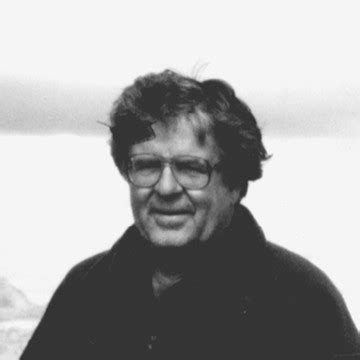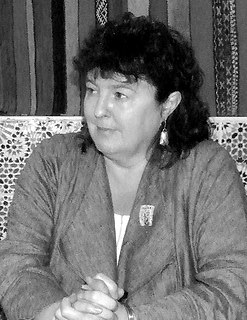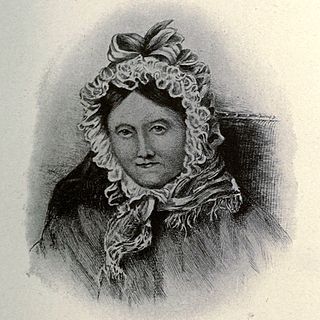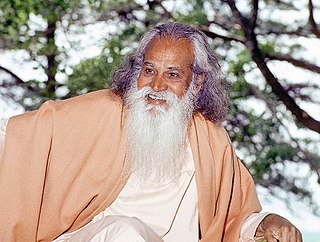Top 862 Lake Placid Quotes & Sayings - Page 15
Explore popular Lake Placid quotes.
Last updated on November 21, 2024.
We have nearly complete misunderstanding between people of different faiths in Lake Wobegon, and that's probably one reason why we get along so very well. It's when you are trying to convince another person to think the same way that you do that there is friction and trouble between people. But when you feel that the other person is dumber than dirt, too dumb for words - why waste your breath - you get along pretty well. There's no bond between people that's quite so strong as when people each feel slightly superior towards the other one.
I'm an African woman, I suppose these thoughts torture me more than they do black American people, because it's like watching my own children trapped in a car that's sinking to the bottom of a lake and being impotent to save them'the black Americans have their own holocaust going on. You see the black man erasing black children from the landscape, you see black women desperately trying to get the black man's attention by wearing blonde hair and fake blue eyes, 500 years after he sold her and their children across the ocean.
Beyond love, beyond unrequited love, perhaps even beyond any other passion known to humanity, deep, deep in the depths of the turgid, clinging, swamplike pit of despair that lies dormant within every soul, lurks JEALOUSY. Jealousy, that most demeaning and debilitating of emotions. Jealousy, which can double the strength of the love upon which it is based, but whilst doubling it, warp and pervert it, untill it is no longer recognizable as the thing of beauty it once was. Jealous love is no more like true love than Mr Hyde was like Dr Jekyll or a stagnant swamp is like a freshwater lake.
There was a small wooden gazebo built out over the water; Isabelle was sitting in it, staring out across the lake. She looked like a princess in a fairy tale, waiting at the top of her tower for someone to ride up and rescue her. Not that traditional princess behavior was like Isabelle at all. Isabelle with her whip and boots and knives would chop anyone who tried to pen her up in a tower into pieces, build a bridge out of the remains, and walk carelessly to freedom, her hair looking fabulous the entire time.
Up there on Huckleberry Mountain, I couldn't sleep ... As the sky broke light over the peaks of Glacier, I found myself deeply moved by the view from our elevation - off west the lights of Montana, Hungry Horse, and Columbia Falls, and farmsteads along the northern edge of Flathead Lake, and back in the direction of sunrise the soft and misted valleys of the parklands, not an electric light showing: little enough to preserve for the wanderings of a great and sacred animal who can teach us, if nothing else, by his power and his dilemma, a little common humility.
I loved him in that moment, loved him more than I'd ever loved anyone, and I wanted to to tell them all that I was the snake in the grass, the monster in the lake. I wasn't worthy of this sacrifice; I was a liar, a cheat, a thief. And I would have told, except that a part of me was glad. Glad that this would all be over with soon. Baba would dismiss them, there would be some pain, but life would move on. I wanted that, to move on, to forget, to start with a clean slate. I wanted to be able to breathe again.
Where I lived - winter and hard earth.I sat in my cold stone roomchoosing tough words, granite, flint,to break the ice. My broken heart -I tried that, but it skimmed,flat, over the frozen lake.She came from a long, long way,but I saw her at last, walking,my daughter, my girl, across the fields,In bare feet, bringing all spring's flowersto her mother's house. I swearthe air softened and warmed as she moved,the blue sky smiling, none too soon,with the small shy mouth of a new moon.
One June evening, when the orchards were pink-blossomed again, when the frogs were singing silverly sweet in the marshes about the head of the Lake of Shining Waters, and the air was full of the savor of clover fields and balsamic fir woods, Anne was sitting by her gable window. She had been studying her lessons, but it had grown too dark to see the book, so she had fallen into wide-eyed reverie, looking out past the boughs of the Snow Queen, once more bestarred with its tufts of blossom.
Osho used me and Shunyo (my girlfriend at the time) as an example of how he envisioned men and women should relate. He shared a story he had often told in discourse of a man and woman who lived at opposite ends of a lake. They were deeply in love but only met by chance when sometimes out rowing on the water. He said it was beautiful how Shunyo and I met like this couple. When we had the feeling to be together, we would meet and enjoy. And when we were apart, we were also happy and content in our aloneness.
When we were in the woods beyond Gowbarrow Park we saw a few daffodils close to the waterside. But as we went along there were more and yet more and at last under the boughs of the trees, we saw that there was a long belt of them along the shore, about the breadth of a county turnpike toad. I never saw daffodils so beautiful. They grew about the mossy stones about and about them, some rested their heads upon these stones as on a pillow for weariness and the rest tossed and reeled and danced and seemed as if they verily laughed with the wind that blew upon them over the lake.
When I come to a new city is I combine: I say, well, it's like Barcelona and Edinburgh, though I can't imagine what that would be. But Toronto, the last few times I've been here, what always comes up is Chicago and West Berlin. It's a big, sprawling city beside a lake, of a certain age and a certain architectural complexity. But the high-end retail core looks more like West Germany than the Magnificent Mile. Yonge Street is like K-Damm. There's an excess of surface marble and bronze: it's Germanic and as pretentious as pretentious can be.
Are you aware that your spirit needs to be fed? Did you know that your spirit would be delighted to partake in a feast of spiritual food? How about a plate full of prayer? Or maybe a few hours of succulent self-reflection. Perhaps a piping-hot selection of spiritual literature, served by the side of a lake or under a tree, would satisfy your spiritual hunger. Can you imagine feasting for a few hours on spiritually uplifting music? What about some forgiveness à la mode, topped with compassion? You cannot imagine how much your spirit would enjoy it.
I turn and I look back across the lake. The mist is gone and the ice diminished, the drip of the icicles quick and heavy. The sun is up and the sky is blue empty blue light blue clear blue. I would drink the sky if I could drink it, drink it and celebrate it and let it fill me and become me. I am getting better. Empty and clear and light and blue. I am getting better.
The notion of the writer as a kind of sociological sample of a community is ludicrous. Even worse is the notion that writers should provide an example of how to live. Virginia Woolf ended her life by putting a rock in her sweater one day and walking into a lake. She is not a model of how I want to live my life. On the other hand, the bravery of her syntax, of her sentences, written during her deepest depression, is a kind of example for me. But I do not want to become Virginia Woolf. That is not why I read her.
Passing just lately over this lake, ... and examining this water next day, I found floating therein divers earthy particles, and some green streaks, spirally wound serpent-wise, and orderly arranged, after the manner of the copper or tin worms, which distillers use to cool their liquors as they distil over. The whole circumference of each of these streaks was about the thickness of a hair of one's head. ... all consisted of very small green globules joined together: and there were very many small green globules as well. [The earliest recorded observation of the common green alga Spyrogyra.]
Yoga says instinct is a trace of an old experience that has been repeated many times and the impressions have sunk down to the bottom of the mental lake. Although they go down, they aren’t completely erased. Don’t think you ever forget anything. All experiences are stored in the chittam; and, when the proper atmosphere is created, they come to the surface again. When we do something several times it forms a habit. Continue with that habit for a long time, and it becomes your character. Continue with that character and eventually, perhaps in another life, it comes up as instinct.
Of four infernal rivers that disgorge/ Into the burning Lake their baleful streams;/Abhorred Styx the flood of deadly hate,/Sad Acheron of sorrow, black and deep;/Cocytus, nam'd of lamentation loud/ Heard on the rueful stream; fierce Phlegethon/ Whose waves of torrent fire inflame with rage./ Far off from these a slow and silent stream,/ Lethe the River of Oblivion rolls/ Her wat'ry Labyrinth whereof who drinks,/ Forthwith his former state and being forgets,/ Forgets both joy and grief, pleasure and pain.
Different people call on [God] by different names: some as Allah, some as God, and others as Krishna, Siva, and Brahman. It is like the water in a lake. Some drink it at one place and call it 'jal', others at another place and call it 'pani', and still others at a third place and call it 'water'. The Hindus call it 'jal', the Christians 'water', and the Moslems 'pani'. But it is one and the same thing.
People should go to the works and experience them. Because just having an idea or picture in mind is absolutely not the experience that's necessary. Even just landing in Albuquerque or Salt Lake City or Las Vegas was immediately part of the experience. And then you'd get in a car from the airport and take these very long trips - in Michael Heizer's case, it was three hours by car to get to his work. And then there's walking around and into the piece and seeing it from different angles. The kinetic experience of being a part of it physically was very important for me.
...so now, Mrs. Ramsay thought, she could return to that dream land, that unreal but fascinating place, the Manning's drawing-room at Marlow twenty years ago; where one moved about without haste or anxiety, for there was no future to worry about. She knew what had happened to them, what to her. It was like reading a good book again, for she knew the end of that story, since it had happened twenty years ago, and life, which shot down even from this dining-room table in cascades, heaven knows where, was sealed up there, and lay, like a lake, placidly between its banks.
One felt as if there was an enormous well behind them. Filled up with ages of memory and long, slow, steady thinking; but their surface was sparkling with the present : like sun shimmering on the outer leaves of a vast tree, or on the ripples of a very deep lake. I don’t know, but I t felt as if something that grew in the ground—asleep, you might say, or just feeling itself as something between roof-tip and leaf-tip, between deep earth and sky had suddenly waked up, and was considering you with the same slow care that it had given to its own inside affairs for endless years.
A world in which time is absolute is a world of consolation. For while the movements of people are unpredictable, the movement of time is predictable. While people can be doubted, time cannot be doubted. While people brood, time skips ahead without looking back. In the coffee houses, in the government buildings, in boats of Lake Geneva, people look at their watches and take refuge in time. Each person knows that somewhere is recorded the moment she was born, the moment she took her first step, the moment of her first passion, the moment she said goodbye to her parents.





















